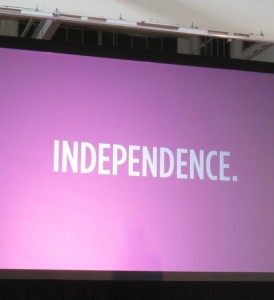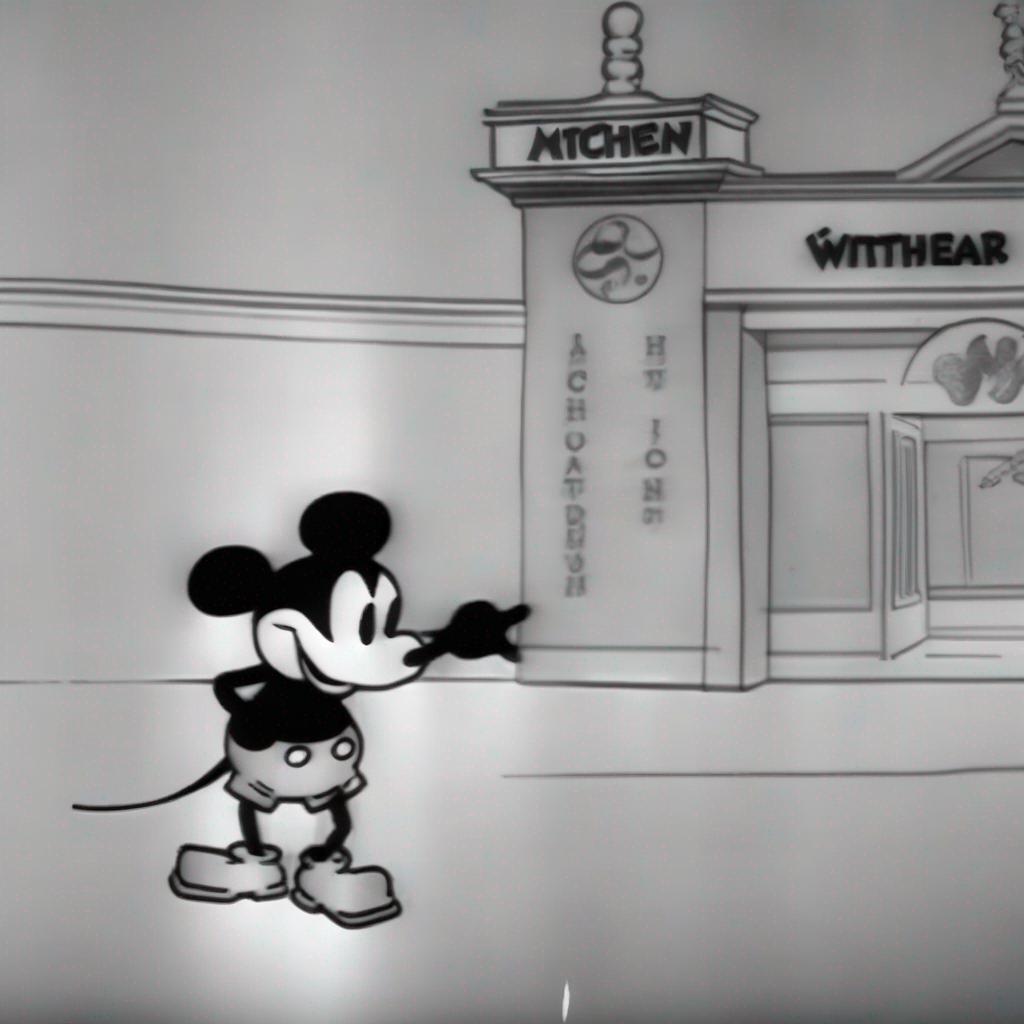There’s More Than One Way To Do It, And Other XOXO Lessons On Indie Creativity
 PORTLAND–Yes, anybody can have their own megaphone, stage, printing press, or fabrication shop on the Internet. But can they get a cash register to go with that? How about an audience willing to put money in it?
PORTLAND–Yes, anybody can have their own megaphone, stage, printing press, or fabrication shop on the Internet. But can they get a cash register to go with that? How about an audience willing to put money in it?
That was the point of XOXO, a three-day conference here staged over the weekend by Andy Baio and Andy McMillan for artists, developers, writers, musicians and entrepreneurs to share things they’ve learned about independent, sustainable creativity. The biggest lesson of them all: There is no one path you must follow if you’re not looking for a dot-com scale payday.
And why would you, XOXO asked its 500 or so attendees, if that grinds down your autonomy? The standard definitions of success you’d hear at some pitch conference–name-brand venture-capital funding, then an IPO or an acquisition by a larger firm–either never came up or were treated as things to be avoided.
(Conference attendees paid $500 a ticket–much less than, say, a pass to SXSW Interactive–but also had to answer three questions posed by Baio and McMillan as a sort of intellectual paywall to thwart marketing types who flock to events like SXSW: “What do you do?”, “What are you working on right now?” and “What’s something you made that you’re proud of?”)
Instead, XOXO speakers focused on how they were able to carve out a satisfying existence on their own terms and in their own ways.
I wasn’t surprised to see so many testimonials about Kickstarter crowdfunding–for example, from the developers of the Creative Commons-licensed party game Cards Against Humanity, novelist Jack Cheng, artist Molly Crabapple, the video-game-console makers Ouya and video-game developers Double Fine Productions.
But others never pursued that or had to engineer self-employment before it became an option. “This was before Kickstarter, so you had to save up your money first,” cartoonist Erika Moen said while explaining that a fortuitous freelance gig gave her that boost instead.
Some of the most interesting XOXO talks discussed where the money can come from day-to-day.
What about ads? That depends on who you ask. Musician Jack Conte related how YouTube has gotten far less rewarding for indie musicians than it was in 2009, when he and Pomplamoose collaborator Nataly Dawn had a Beyoncé cover go viral. Instapaper developer Marco Arment decried the tumbling rates for ads on news sites–and the traffic-whoring editing that can result.
Conte’s response was to set up a site, Patreon, at which fans can kick in a set amount to artists they like every time they upload something new–with extra rewards like advance notice of shows or private Google Hangouts to those who give more. It looks like a smart implementation of the “connect with fans + reason to buy” business model advocated by Techdirt’s Mike Masnick.
Arment is pivoting to podcasting, where the structure of the medium discourages click-bait headlines and can increase the value of ads. “People do love it, and sponsors will pay for it,” he said while announcing that his next project will be an iOS podcast app called Overcast. “You’ll never get a CPM as good as you will on a good podcast.”
But ads in a text-based medium don’t have to fail. Boing Boing editors Mark Frauenfelder, Cory Doctorow, David Pescovitz and Xeni Jardin still grant each other veto power over any one ad. But despite or because of that ambivalence, a mix of traditional ad formats and sponsored-content posts seem to be working fine for the site (disclosure: an occasional client of mine).
Industrious Internet musician Jonathan Coulton noted the different sources of income he’s lined up–music and merchandise sales, touring, playing on NPR’s “Ask Me Another,” even an annual fan cruise–but griped a little about still being seen as a fluke.
For all of XOXO’s moving moments, its speakers got justifiably cranky about a few impediments to indie creativity. For instance, Crabapple spoke out against the idea that people should work for free for the sake of theoretical exposure. “Do not work for large corporations for free,” she said.
Arment criticized Apple’s role as an unaccountable gatekeeper in the iOS App Store: “You could work on something for months, and they could just say ‘nope’.” He also denounced the way patents have distorted the software business, saying “Whatever they’re supposed to do to protect innovation is a load of crap,” he said.
(I was surprised nobody discussed the tax code’s treatment of self-employment or the Affordable Care Act‘s potential to make that status a less hazardous proposition.)
Some of the simplest advice at XOXO came from Maciej Ceglowski, founder of the bookmarking service Pinboard. “Talk about money,” he said. “Only the rich have the benefit of never thinking about money. The rest of us need to be a little more blunt.”








